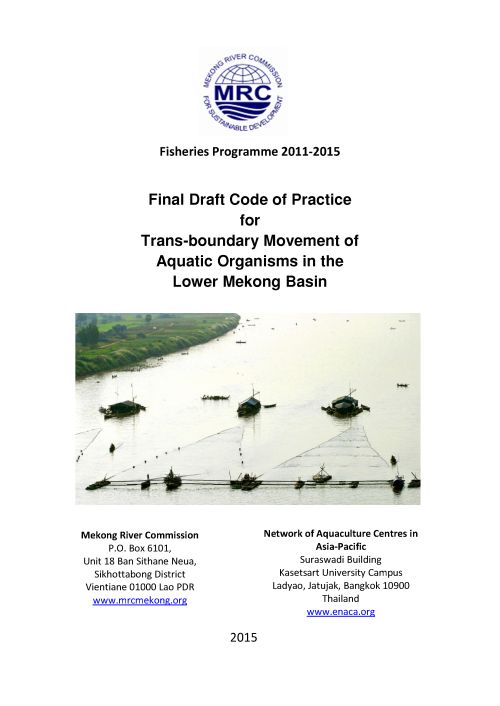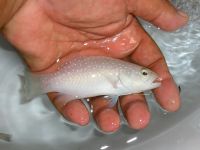Development of regional code of practice for movement of aquatic organisms in the lower Mekong basin
1 November 2016 | 4652 views | .pdf | 387.14 KB | Better management practices, Health and Biosecurity, Inland aquaculture

The objective of this project was to develop an agreed code of practice for the transboundary movement of aquatic organisms that feeds into the fisheries management strategy for the lower Mekong basin.
Policies and regulations on transboundary trade and movement of aquatic organisms are lacking in most MRC member countries. The risks of unregulated movements include the introduction of disease agents, unwanted or invasive species and of compromising the genetic integrity of local populations.
The code of practice provides guidance on risk management and mitigation measures be taken into account for live aquatic animal imports or other transfers that are part of the established commercial practice, or those related to scientific study at research facilities. The code addresses impacts relating to the movement of both exotic and indigenous species.
Partners
The code was developed in consultation with the fisheries line agencies of MRC member countries. Input to the code included national surveys conducted by in-country experts and a regional consultation workshop that was held from 3-4 November 2014.
Funding agency and partners
Development of the code was funded by the Mekong River Commission.
Status
The project began in March 2014, and was completed in December 2015.
Creative Commons Attribution.
